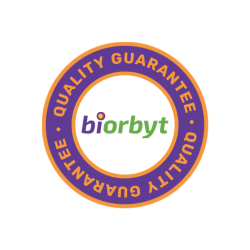You have no items in your shopping cart.
Cart summary

Recombinant Human TGF-β1
Catalog Number: orb1921828
| Catalog Number | orb1921828 |
|---|---|
| Category | Proteins |
| Description | Transforming growth factor-β1 (TGF-β1) was the first fully cloned of the TGF-β superfamily members, which are collectively coded by 33 different genes in mammals. TGF-β1 is a homeostatic factor that keeps the immune system in balance and orchestrates the complex tissue repair processes following injury or infection in all organs. Failure of TGF-β1 to regulate normal body repair mechanisms is one commonality of pathological conditions like cancer and fibrosis that both involve dysregulated immunity, inflammation, exacerbated stromal cell activation, and overproduction of extracellular matrix (ECM). As for any other process that involves TGF-β1, there are numerous excellent reviews discussing its role in physiological healing and fibrosis, immunity, and cancer. TGF-β signaling begins when the activated TGF-β ligand docks with type II TGF-β1 receptor (TβRII) subunits on the cell surface, leading to the recruitment of type I TGF-β1 receptor (TβRI) subunits that become phosphorylated and activated by TβRII. In Smad-dependent TGF-β1 signaling, the R-Smads Smad2 and Smad3 are recruited and subsequently phosphorylated by TβRI. The activated Smad2/3 complex assembles with co-Smad4 and translocates to the nucleus, where it associates with co-activators and cell-specific transcription factors to regulate gene expression. Inhibitory Smad7 antagonizes TGF-β signaling by inhibiting R-Smad binding sites on the TβRI. In addition to regulating transcription by phosphorylating Smad2 and Smad3 and facilitating formation of a Smad2/3/4 complex that induces transcription, TGF‑β1 interacts with other signalling pathways. It can activate the mitogen-activated protein kinases (MAPKs), p38, c-Jun N-terminal kinase (JNK) and extracellular signal-related kinases (ERK) in a Smad-independent manner. |
| Form/Appearance | Lyophilized Powder |
| Purity | ≥95% |
| MW | 12.62 kDa |
| Entrez | 7040 |
| UniProt ID | P01137 |
| Source | CHO Cell |
| Expression System | Eukaryotic cell |
| Endotoxins | ≤10 EU/mg |
| Storage | Use a manual defrost freezer and avoid repeated freeze - thaw cycles. 12 months from date of receipt, -20 to -70°C as supplied. 1 month, 2 to 8°C under sterile conditions after reconstitution. 6 months, -20 to -97°C under sterile conditions after reconstitution. |
| Alternative names | Transforming Growth Factor Beta 1, Latency-Associa Read more... |
| Note | For research use only |
| Application notes | Application Notes: For research use only. Minimum Sample Size: 50μg/vial |
| Expiration Date | 6 months from date of receipt. |
Recombinant Human TGFB1+LAP [orb1098658]
ELISA, WB
Greater than 90% by SDS-PAGE gel analyses
16,38,55 kDa
HEK 293 cells
1 mg, 100 μg, 50 μg, 200 μg
Submit a review
Filter by Rating
- 5 stars
- 4 stars
- 3 stars
- 2 stars
- 1 stars
